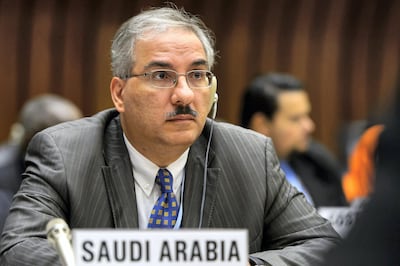The second wave is real and it hit the Middle East in early October, said a prominent Saudi Arabian doctor.
"We do know the Covid-19 virus is mutating in almost every country, including in the Middle East,” said Dr Ziad Memish, the Kingdom’s former deputy minister of public health.
"The second wave is very real and we are seeing it in all six World Health Organisation regions," he said.
"In the Eastern Mediterranean region, the second wave has started in some countries and the highest affected in the last few weeks are Iran, Iraq, Morocco and Jordan.”
In first two weeks of October, cases jumped by 23 per cent in Morocco and by 46 per cent in Libya, he said.
Dr Memish made his remarks on Friday at The UAE Infectious Diseases Week conference hosted in Dubai. That day, the UAE reported its tenth consecutive day of more than 1,000 new cases.

Covid -19 vaccine development
"The vaccine is the way forward,” said Dr Memish, adding that it may require booster shots as in the case of flu vaccines.
"Whatever vaccine comes up, we will have to give booster doses every year or two years."
He also warned of the risks with rushing vaccine development. Under normal circumstances, the process of producing a vaccine can take up to 15 years.
Vaccine development begins with preclinical studies, which are followed by three phases that require approval from regulatory authorities and detailed safety assessments.
With Covid-19, this process could be shrunk into less than a year, he said.
"Over the last nine months, we have seen a lot of vaccines that have been developing expedited. We have 10 of these vaccines in late clinical trials," said Dr Memish, who is an infectious disease specialist at the King Saud Medical City in Saudi Arabia.
"We do not know many of these 10 vaccines will actually make it to the market."
There have also been some hitches.
The University of Oxford and British pharmaceutical company AstraZeneca halted clinical trials globally after a volunteer in the UK fell ill, although work restarted everywhere except the US.
American pharmaceutical giant Johnson and Johnson also temporarily suspended its Phase 3 Covid-19 vaccine trial due to an unexplained illness in a study participant.
"We all know that the concerns with developing vaccines are unknown side effects,” said Dr Memish.
"We require 20 million doses to be administered to know the absolute safety of the vaccine. Currently, the studies going on recruit between 30,000-60,000 individuals, which gives some idea of short-term safety but does not give you information on long-term safety."










